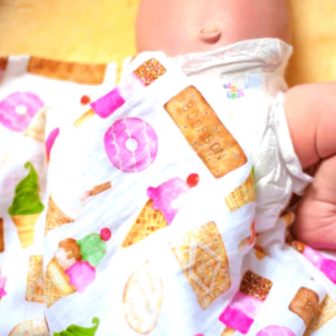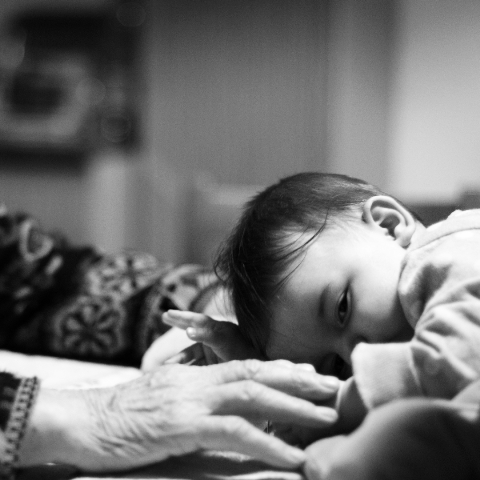Having a baby can often be a learning experience for parents in the first few months. What do you do when your Baby Straining and Crying to Poop but Not Constipated
When something is different from the norm, there’s always a reason to be concerned. Pooping problems in babies are a common cause of concern for new parents or parents in general. Talking about poop becomes normal when you become a parent.
You worry if your baby doesn’t poop enough, you wonder why your baby appears to strain when she poops, and you celebrate when your baby poops.
Baby straining and Crying to poop but not constipated
Infantile Dyschezia is a common problem in newborns and one that is often not a cause for concern. Parents will typically find that baby will pass some nice and soft stool after straining for a while.
Infantile Dyschezia is a common problem in newborns and one that is often not a cause for concern. Parents will typically find that baby will pass some nice and soft stool after straining for a while.
Infantile Dyschezia is a common problem in newborns and one that is often not a cause for concern. Parents will typically find that baby will pass some nice and soft stool after straining for a while.
The reason why babies find it difficult to poop is that it requires lots of coordination between the brain, muscles, and pelvis.
Babies exhibit an uncontrolled stooling reflex. Furthermore, the muscles around the anus do not relax at the appropriate time. The baby, therefore, exerts strong pressure on the diaphragm and tummy muscles while holding the anus tightly shut.
After around 10 minutes, the baby’s effort will relax the muscles enough for poop to come out. It is even possible that they cry in order to help create pressure in the stomach. Therefore, when they do cry it is likely not because they are in pain.
It can take some time for babies to learn to poop efficiently, but they will eventually get it. The baby’s digestive system will become more efficient as it matures.
How to Tell if a Newborn is Constipated
There are a few signs that indicate whether your newborn is constipated.
These include
- Infrequent and difficult to pass stools
- Having to strain more than usual to pass stools
- Small pebble-shaped, soft, large and wide stools
- Stool that is like diarrhea but does not pass through the intestines
- Swollen stomach caused by gas
- Cramping
It is important that you talk with your doctor right away if you notice these symptoms.
The majority of newborn constipation cases will clear up on their own without medication. In some cases, doctors may recommend prescription laxatives if your baby’s poop becomes stuck inside his rectum.
Always check with your pediatrician before giving your child any medicine, so they can determine your child’s needs.
How to Help a Newborn Poop

It is not uncommon for a newborn to have difficulty pooping. Parents can help their baby poop by trying the following
- Take a warm bath to relax the anus
- Warm water helps many children relax their anus and release stool
- Babies’ stools are more likely to be released in a flexed position
- Hold your baby in a seated or squatting position, if possible, as lying down while pooping can be difficult
- Hold the knees against the chest to help your baby. It is similar to your baby squatting. Squatting is the natural way to push out the stool.
- You can also gently pump the left side of the belly.
Tips to Prevent Constipation in Babies
- Breastfeed your baby if possible, breast milk is easily digestible
- Avoid introducing solid foods before 6 months
- Feed your baby small portions of food, fiber rich food is recommended
- Sit your baby upright for at least an hour after feeding them
- Give plenty of liquids like water, 100% Pear or Prune juice
- Exercise your baby by moving his legs, you can move baby’s legs back and forth in a bicycling motion. Constipation can be relieved this way.
- A warm bath can be helpful. By giving a baby a warm bath, they will be able to relax their abdominal muscles and stop straining when having a bowl movement
Causes Of Straining and Crying During Defecation in Babies
Straining and crying during defecation in babies is a common phenomenon, which can occur both with newborns and toddlers.
It is especially true for newborn babies because they are not able to sit up straight on their bottoms, nor do they have enough control over their bowel movements.
This lack of control causes them to strain excessively when passing stools. One thing to keep in mind is that when a baby is always straining to poop, it may indicate that there is an obstruction or a more serious underlying medical condition.
So if your baby starts crying while pooping, it is important to check her stool consistency; you should also consult with your health care providers because pooping should not be painful.
Does Breastfeeding Cause Passing Hard Stools in Babies?
Most pediatricians advise new mothers to exclusively breastfeed for the first 6 months, as breast milk contains many properties that promote the overall growth of the baby, it has also been said to prevent some health issues.
Reasons For Abdominal Pain in Babies
Abdominal pain is usually a symptom of another condition. It can also be a sign of constipation, which is common in newborns.
Common Reasons for Constipation in Babies:
- Lack of fiber in diet
- Formula
- Not enough fluids
- Change in routine
- Reflux
- Medication
Signs Of Intestinal Blockage in Infants
To identify intestinal blockage in infants, we need to understand that different symptoms will be seen in different conditions. But there are some common signs of intestinal blockage in infants.
Signs of Intestinal Blockage in Infants:
Abdominal Pain
- Constipation
- Jelly like stool mixed with blood
- Rectal Bleeding
- Diarrhea
- Flatulence
- Nausea
- Vomiting
- Lack of appetite
Tiredness
Final Thought
Most newborns struggle pooping at some point in their early weeks. It’s completely normal, and it doesn’t mean there’s anything wrong with your baby. However, it is important to know the signs of constipation, so you can address them quickly and effectively.
He may need a little help getting things moving and should probably be checked out just as a precautionary measure.
I hope you will find this Baby Straining and Crying to Poop but Not Constipated guide helpful.




5 thoughts on “Baby Straining and Crying to Poop but Not Constipated”
Thank you for taking the time to read our article.
Thank you
Thank you so much for taking the time to read our content.
Pingback: 6 Most Bizarre But Effective Treatments For Infant Colic - Wellandgood Family
Thank you for stopping by, please come again!